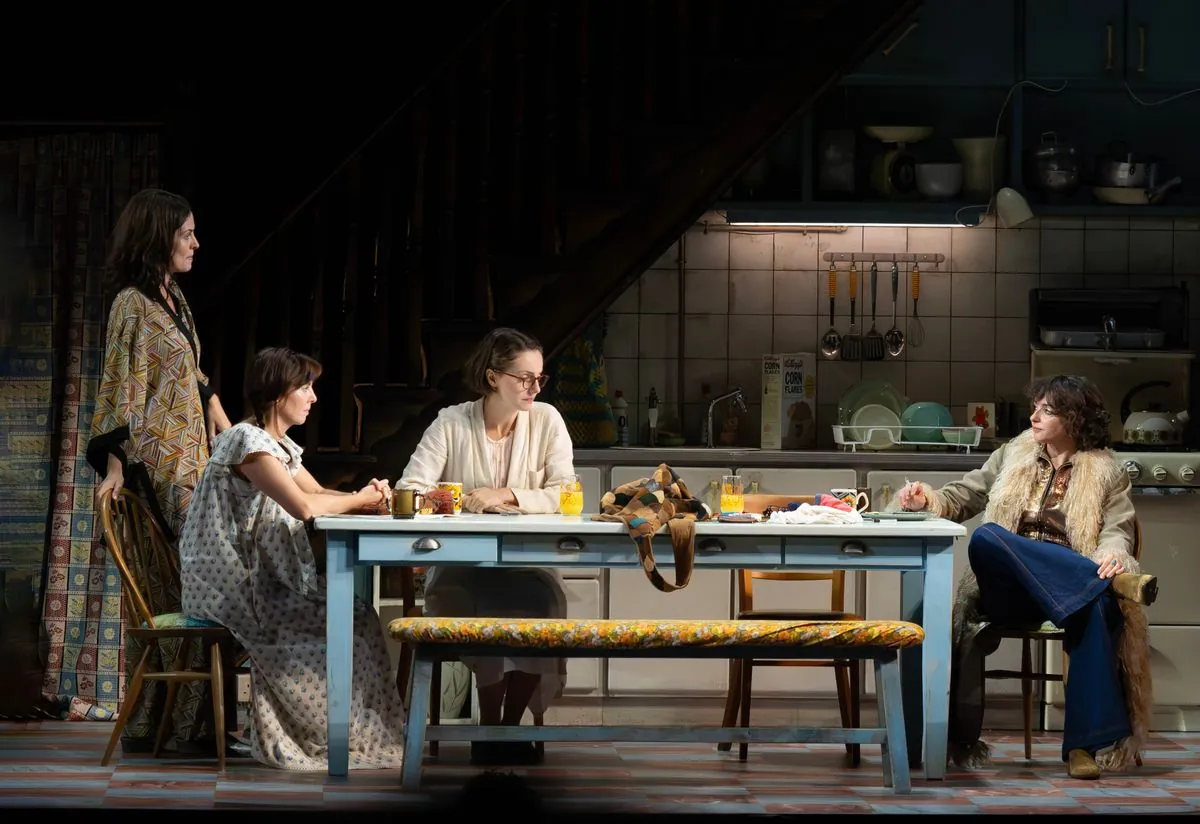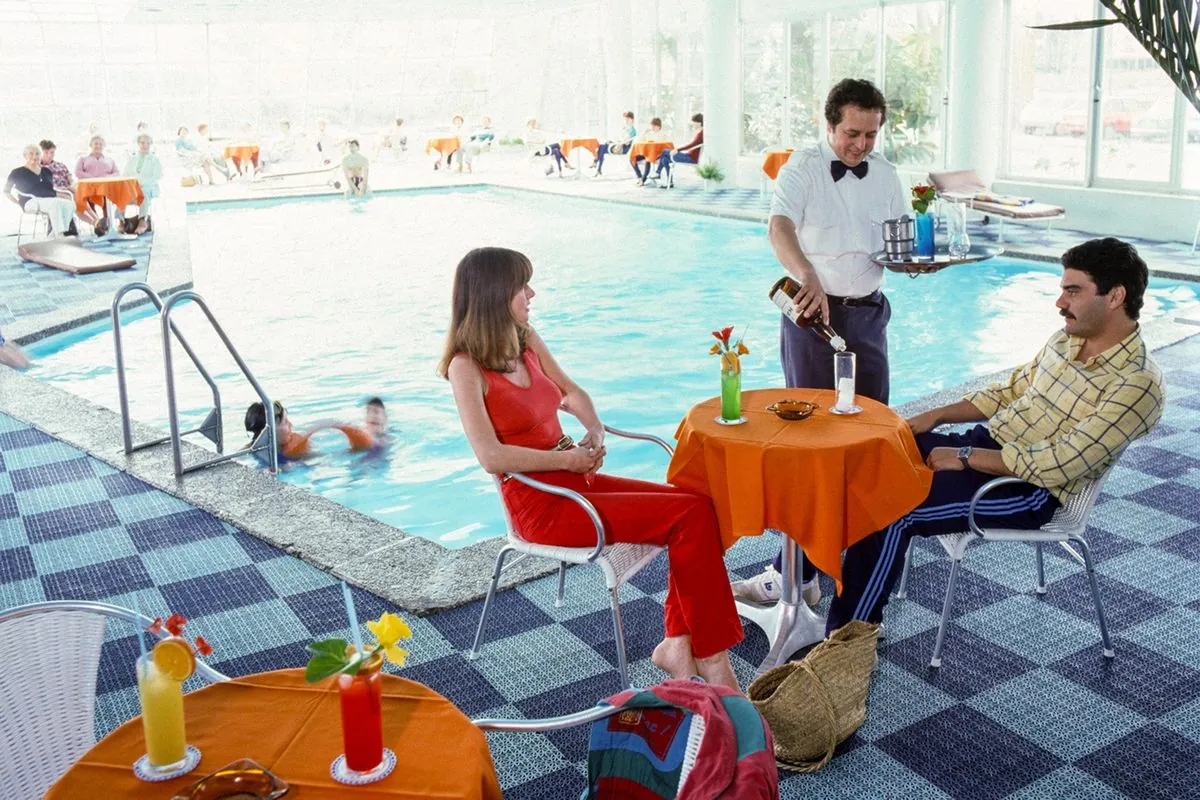Broadway's "Hills of California": A Familiar Family Drama with Atmospheric Flair
Jez Butterworth's new play explores sisterly bonds and maternal ghosts in 1970s Blackpool. Despite strong performances and moody staging, the story treads well-worn theatrical ground.

In the heart of New York's theater district, a new production has taken root at the Broadhurst Theatre. Jez Butterworth's "The Hills of California," directed by the acclaimed Sam Mendes, brings a slice of 1970s Blackpool to Broadway, having crossed the Atlantic from London's West End.
The play centers on four sisters reuniting in their coastal hometown as their mother approaches death. Set against the backdrop of a suffocating summer day, the production weaves a tapestry of family dynamics, unfulfilled dreams, and the long shadows cast by parental expectations.
At the core of the story is the absent sister, Joan, who fled to California two decades prior. Her ghostly presence looms large over the reunion, serving as a catalyst for exploring the divergent paths taken by her siblings. Jill (Helena Wilson), the caretaker who remained behind; Ruby (Ophelia Lovibond), warm yet wry; and Gloria (Leanne Best), sharp-tongued and resentful, each grapple with the idea of Joan and what her absence represents.
The play's second act transports the audience to the sisters' childhood, revealing the roots of their complex relationships. Here, we meet their mother, Veronica, brilliantly portrayed by Laura Donnelly. With echoes of Katharine Hepburn's commanding presence, Donnelly's Veronica is a failed stage mother, drilling her daughters in Andrews Sisters-style harmonies and running their seaside inn with military precision.

Butterworth's script shines in its linguistic craftsmanship, finding humor and poignancy in the rhythms of everyday speech. However, the play's themes of sibling rivalry, parental disappointment, and the prodigal's return tread familiar theatrical ground. Echoes of works like "Gypsy," "Little Women," and "August: Osage County" resonate throughout, leaving "The Hills of California" feeling less groundbreaking than its atmospheric staging might suggest.
Sam Mendes' direction leans heavily into creating a brooding, almost supernatural ambiance. Rob Howell's rotating set, featuring M.C. Escher-inspired staircases, coupled with Natasha Chivers' shadowy lighting and Nick Powell's ominous score, infuse the production with a sense of foreboding that sometimes overshadows the more mundane family drama at its core.
While the play's third act attempts to answer the mysteries surrounding Joan's fate in Hollywood, it ultimately feels less compelling than the tensions her absence has created among her sisters. The return of the prodigal, portrayed by Donnelly in a dual role, relies heavily on California stereotypes that might have been better left to the imagination.
Despite these shortcomings, "The Hills of California" offers a showcase for its talented ensemble. The performances, particularly in the explosive final scenes, demonstrate the cast's ability to breathe life into even the most well-worn theatrical tropes.
As the curtain falls, audiences are left to ponder the enduring power of memory and imagination, even in the face of harsh realities. While "The Hills of California" may not break new ground, it serves as a reminder of theater's ability to explore the complex terrain of family relationships, set against the backdrop of a fading seaside town and the allure of distant dreams.
"Family is the crucible where we all begin. It's where we learn to love, to hate, to dream. In 'The Hills of California,' I wanted to explore how those early experiences shape us, and how we carry them with us, even when we think we've left them behind."
"The Hills of California" runs at the Broadhurst Theatre until December 22, 2024, offering theatergoers a moody, if familiar, journey into the heart of sisterly bonds and maternal ghosts.


































